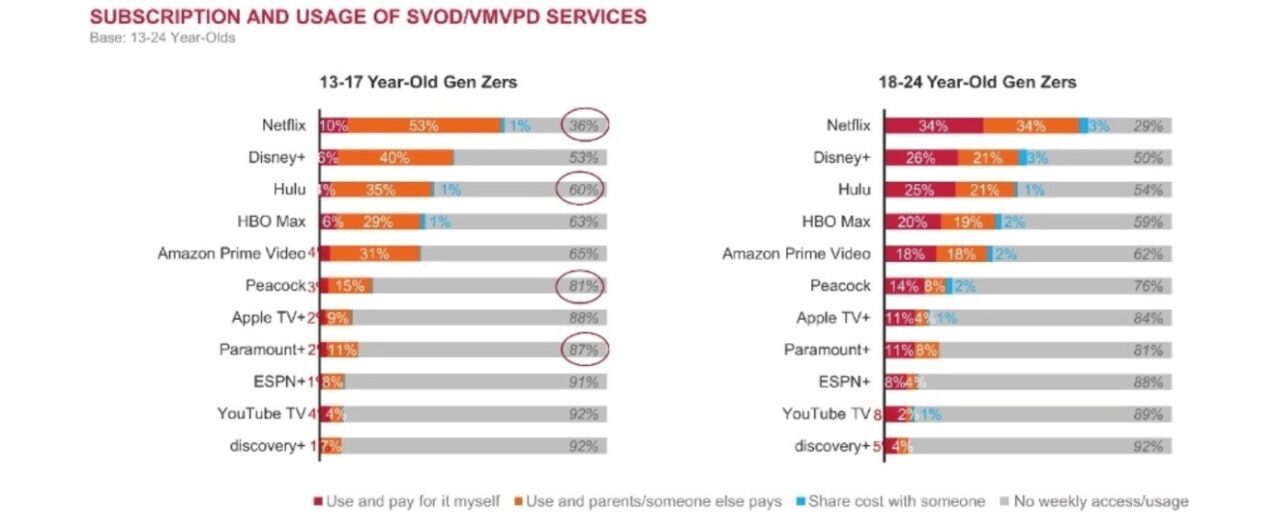
Horowitz found that overall Gen Zers split video viewing time rather evenly between professional TV content and non-TV content, such as user-generated videos. Gen Zers who are 13-17 spend a slightly greater proportion of their viewing time with non-TV content, while older Gen Zers are more likely to devote a greater proportion of viewing time to professional TV content.
Given that they spend more time with professionally produced TV content, older Gen Zers were found to be more likely than their younger counterparts to access that content through all types of platforms — subscription streaming services, free streaming services, virtual cable/satellite services like Sling TV or Hulu with Live TV, and traditional cable/satellite services — than those who are 13-17.
The analyst attributed some of this behaviour to access to both platforms and services. For both Gen Z age groups, the smartphone was revealed as the device to which content is streamed the most on an everyday/almost everyday basis. Younger Gen Zers were less likely than their older counterparts to have TVs, smart displays such as Amazon Echo Shows, and gaming consoles in their own bedrooms; concomitantly, they are less likely than their older counterparts to be watching video content on those devices every day/almost every day.
Looking at services used to watch content, the analysis noted that when it comes to the services used to watch content, the fact that younger (13-17 year-old) Gen Zers were more dependent on their parents for the services they can use meant lower usage of services like Hulu, Peacock and Paramount+. In contrast, 18-24 year-olds were more able to make independent decisions about the services they want to subscribe to and had access to a wider range of streaming options.
“We are often asked how media brands can engage with Gen Zers who seem to be so immersed in short-form content. I like to remind them that this generation is not the first cohort of young people to be engaged in short-form content,” said Adriana Waterston, chief revenue officer and insights and strategy lead for Horowitz Research.
“Engagement with short form does not totally cannibalise long-form viewing. Young people today are still watching professionally produced TV content, just less of it compared even [with] older audiences within their generational cohort. And these data suggest that part of this is because they have less agency over what they can gain access to. As young people’s lifestyles change, as they enter new life stages, and as they develop different interests, deeper engagement with long-form content across a range of genres will follow.”
Source: rapidtvnews.com

